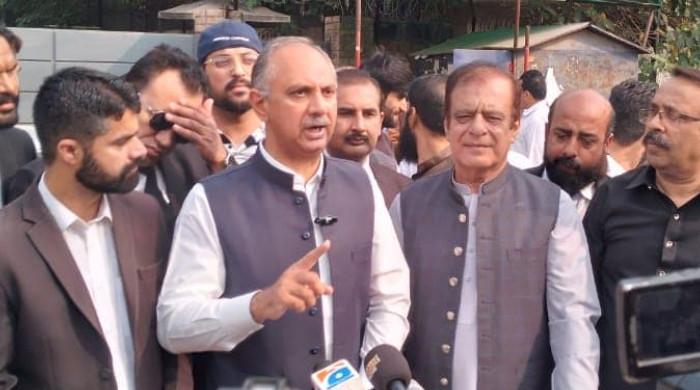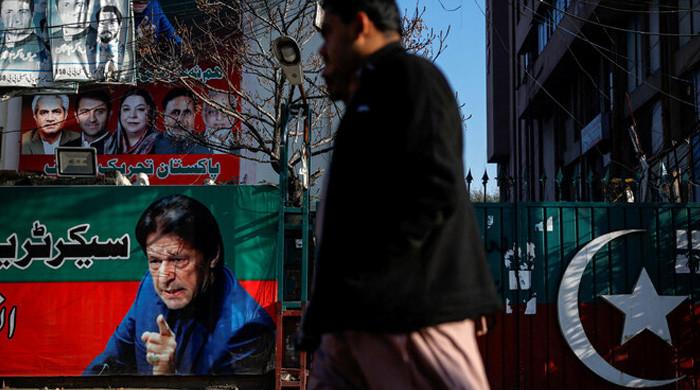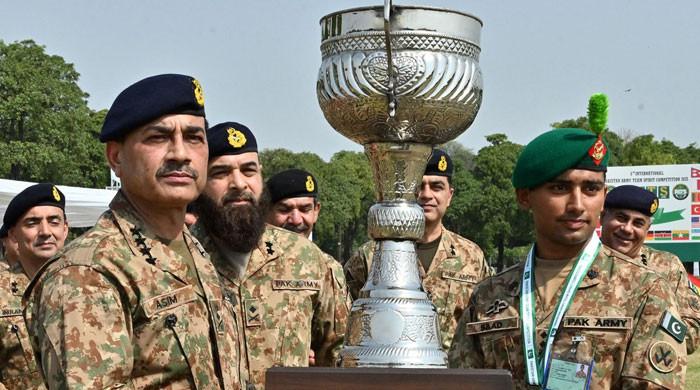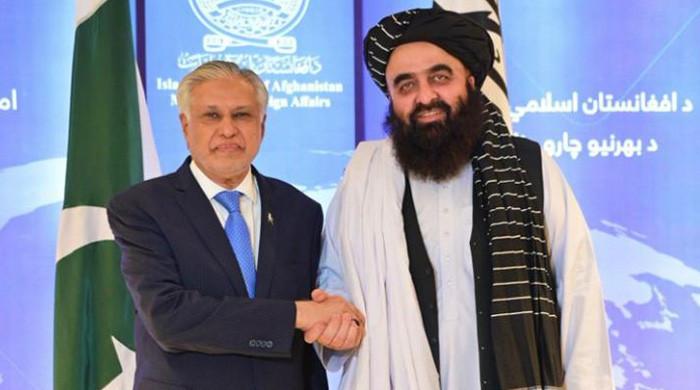PM for provision of affordable broadband connectivity to remotest areas
E-services are rapidly evolving field and can provide health, education, business opportunities to people in remotest areas, the PM says
January 12, 2018
ISLAMABAD: Prime Minister Shahid Khaqan Abbasi Friday asked the Ministry of Information Technology to ensure reliable and cheap broadband connectivity across the country, particularly to remotest areas, to ensure spread of digital facilities to the common man.
These areas mainly include Balochistan, Khyber Pakhtunkhwa and Federally Administered Tribal Areas (FATA).
In near future, projects will also be awarded for mobile broadband services in D.I. Khan, North Waziristan, South Waziristan, Kurram Agency, F R Tank, Orakzai, FR Bannu and Lakki Marwat.
Speaking at a ceremony here at a local hotel for the contract signing of Broadband for Sustainable Development Projects in Khyber and Mohmand agencies in FATA, and DI Khan, the prime minister commended the initiative and said it would help bridge the gap between urban and rural areas by providing modern facilities to the people at their door steps.
The project for provision of telecom services to the underserved areas was being implemented by the Universal Service Fund, working under the Ministry of Information Technology. After the launch of 3G and 4G services, it has provided internet service to 5,896 Mauzas. The new contracts would enable it to extend these services to Khyber and Mohmand agencies, and DI Khan at a cost of Rs3.5 billion and facilitate over four million people in 1,187 Mauzas.
PM Abbasi tasked the Ministry of Information Technology to complete the project in next four months and provide connectivity at affordable rates.
He hoped that it would open up new horizons for the people and provide them e-commerce and a host of other services, that they could not have imagined a few years ago.
The prime minister said that e-services were a rapidly evolving field and could provide health, education and business opportunities to the people in remotest areas of the country.
He said at a later stage it could also help in e-voting and help cut down the cost of holding elections.
The prime minister also mentioned the initiative by the Universal Service Fund (USF) for provision of Information and Communication Technologies (ICTs) for girls in delivery of IT and e-services in unserved and underserved areas.
Under the USF Project “ICTs for Girls”, Microsoft has collaborated to train young girls to empower them to participate in socio-economic development of the country. So far 100 computer labs have been established in Pakistan Bait-ul-Maal’s Women Empowerment Centres and would train 35,000 students.
Abbasi termed it just the tip of the ice-berg and said it would empower women and enable them earn a respectable income from their homes.
Minister for Information Technology Anusha Rehman said the USF was also providing ICTs training to young girls at government schools in Islamabad through 226 computer labs. Microsoft would train 202 teachers, who would impart training to over 70,000 girls.
She also pointed to the project for empowerment and creation of economic opportunities for small and medium enterprises and artisans though e-commerce.
The minister said technology would help build social and economic growth and make it easier to provide e-health, e-education and several other facilities.
The project has focused on Balochistan due to its emerging strategic significance with the China Pakistan Economic Corridor (CPEC).
She said since 2013 contracts had been awarded for providing mobile broadband services in Kalat, Sibi, Zhob, Kohistan, Dera Bugti and Kharan-Washuk and said it was part of the programme towards a digital Pakistan.
According to an estimate, out of more than 12.3 million population, 46 per cent of Balochistan population has no access to either mobile, wireless or a fixed line network.
The prime minister earlier witnessed inking of the contracts between the USF and the service providers of Ufone and Telenor.
Later while speaking to APP, CEO Telenor Pakistan Irfan Wahab Khan said empowering societies was at the core of values at Telenor Pakistan.
He said while putting up 120 new sites across five districts was a big task, its teams were energised by the challenge of bringing connectivity to 1.7 million inhabitants of Mohmand Agency and Dera Ismail (DI) Khan.











